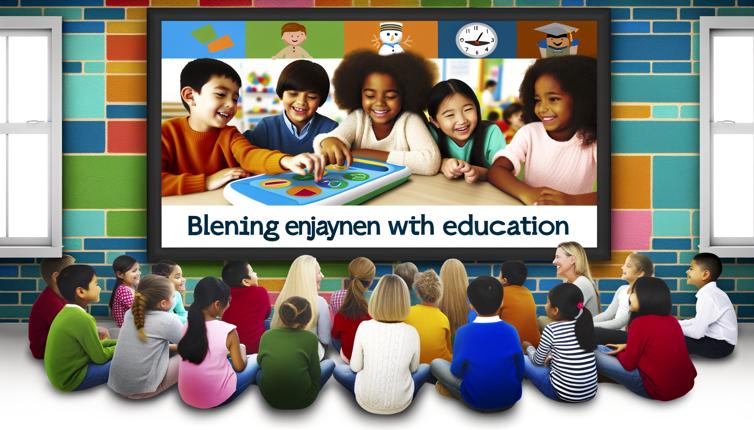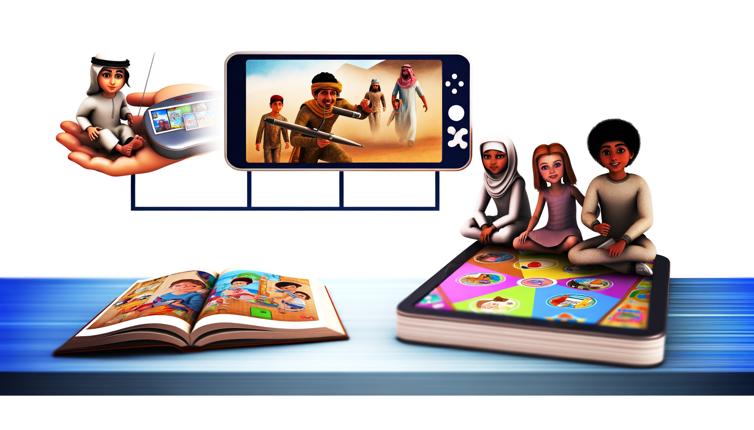Understanding Learning Disabilities
Before diving into the world of educational games, it's important to have a basic understanding of learning disabilities. Learning disabilities are neurological disorders that affect how a person receives, processes, and communicates information. These disabilities can manifest in various ways, such as difficulties in reading, writing, speaking, or mathematics. It's crucial to identify a child's specific learning disabilities to provide targeted support and intervention.,Common types of learning disabilities include dyslexia, dysgraphia, dyscalculia, and auditory processing disorder. Each type of learning disability requires different strategies and accommodations to help the child learn effectively.
Benefits of Educational Games
Educational games offer several benefits for kids with learning disabilities. Here are a few of the advantages:,1. Engagement and Motivation: Educational games are designed to be engaging and enjoyable. These games provide a sense of motivation and excitement, making learning more interesting for children with learning disabilities.,2. Multi-Sensory Learning: Many educational games incorporate visual, auditory, and kinesthetic elements, allowing kids to learn through multiple senses. This multi-sensory approach can be particularly beneficial for children with learning disabilities, as it activates different areas of the brain and enhances learning and retention.,3. Individualized Instruction: Educational games often provide personalized instruction based on the child's abilities and progress. They can adapt to the child's level of skill and provide targeted practice and reinforcement.,4. Skill Development: Educational games target specific skills and concepts, helping children with learning disabilities improve in areas they struggle with. These games provide ample opportunities for practice and reinforcement, allowing kids to strengthen their skills at their own pace.,5. Positive Learning Environment: Educational games create a positive and non-threatening learning environment. Kids can explore and experiment without the fear of making mistakes or facing judgment.,It's important to note that while educational games can be highly beneficial, they should not replace other forms of intervention and support for children with learning disabilities. They should be used as a supplement to a comprehensive approach to education.
Choosing the Right Educational Games
When selecting educational games for kids with learning disabilities, it's essential to consider their specific needs and learning styles. Here are some tips to help you choose the right games:,1. Identify Learning Goals: Determine the specific skills or concepts your child needs to work on. Look for games that target those areas and provide opportunities for practice and reinforcement.,2. Consider Compatibility: Ensure that the game is compatible with your child's device or platform. Check the system requirements and compatibility before making a purchase.,3. Read Reviews and Recommendations: Look for reviews and recommendations from educators, parents, and other professionals working with children with learning disabilities. Their insights can help you make an informed decision and select high-quality games.,4. Trial Periods or Free Versions: Many educational games offer trial periods or free versions. Take advantage of these opportunities to test the game and see if it meets your child's needs and preferences.,5. Seek Expert Advice: If you're unsure about which educational games to choose, consult with educators, therapists, or specialists who work with children with learning disabilities. They can provide valuable guidance and recommend appropriate games for your child.,Remember, finding the right educational games may require some trial and error. Be patient and flexible, and be willing to adjust and explore different options as you discover what works best for your child.
Conclusion
Educational games can be powerful tools in helping kids with learning disabilities overcome their challenges and improve their academic skills. By incorporating interactive and engaging elements, these games can motivate and support children with learning disabilities, making learning a more enjoyable and effective experience. However, it's crucial to choose the right games that align with your child's specific needs and learning goals. With careful selection and guidance, educational games can play a significant role in enhancing the education and development of kids with learning disabilities.









